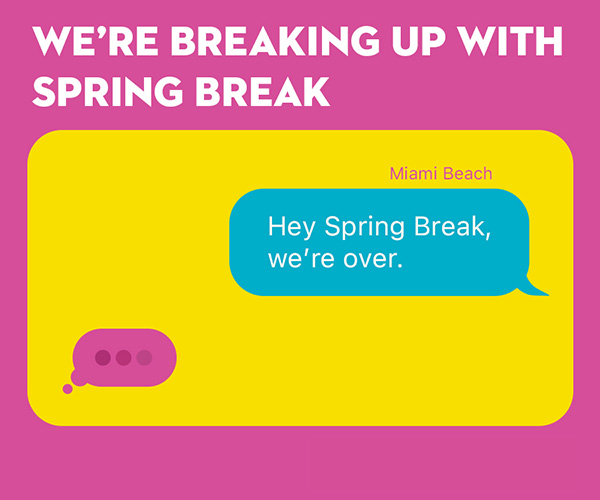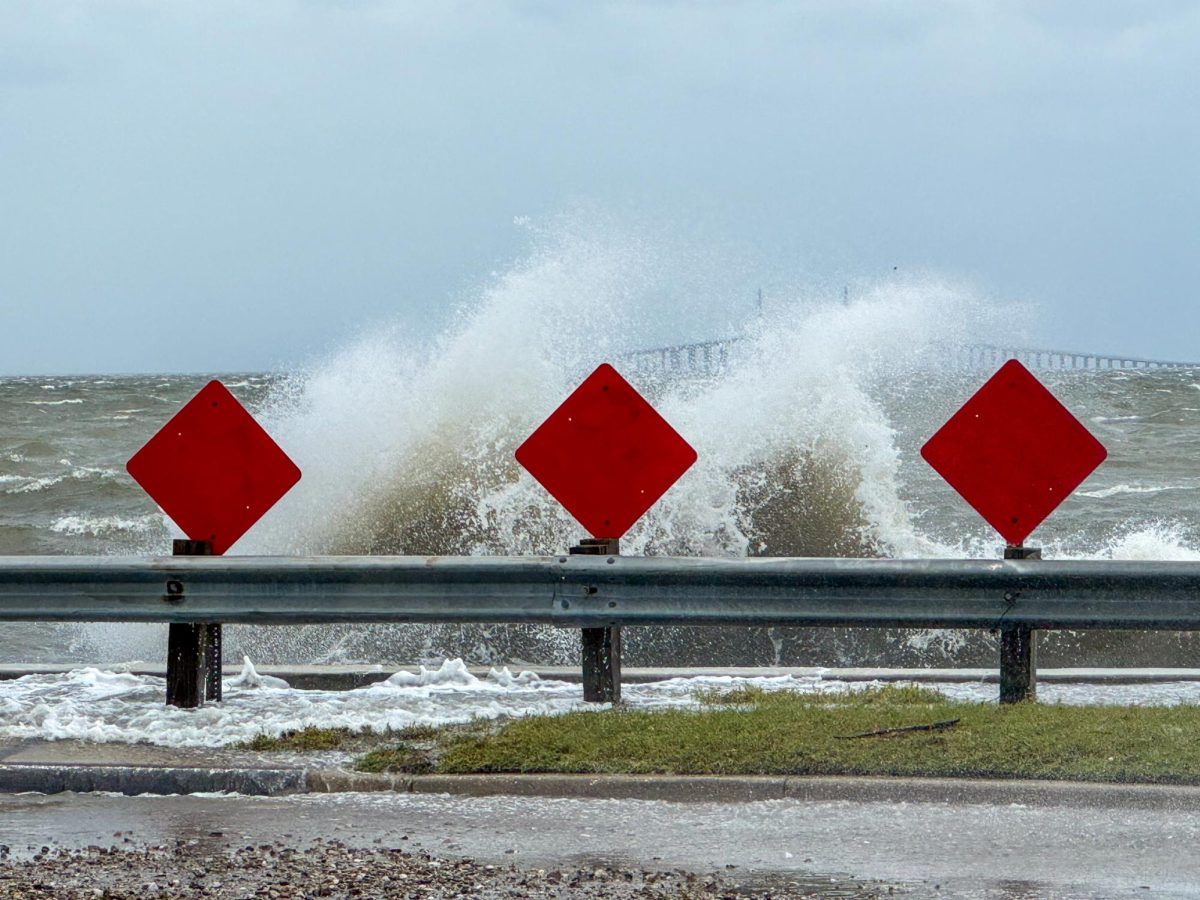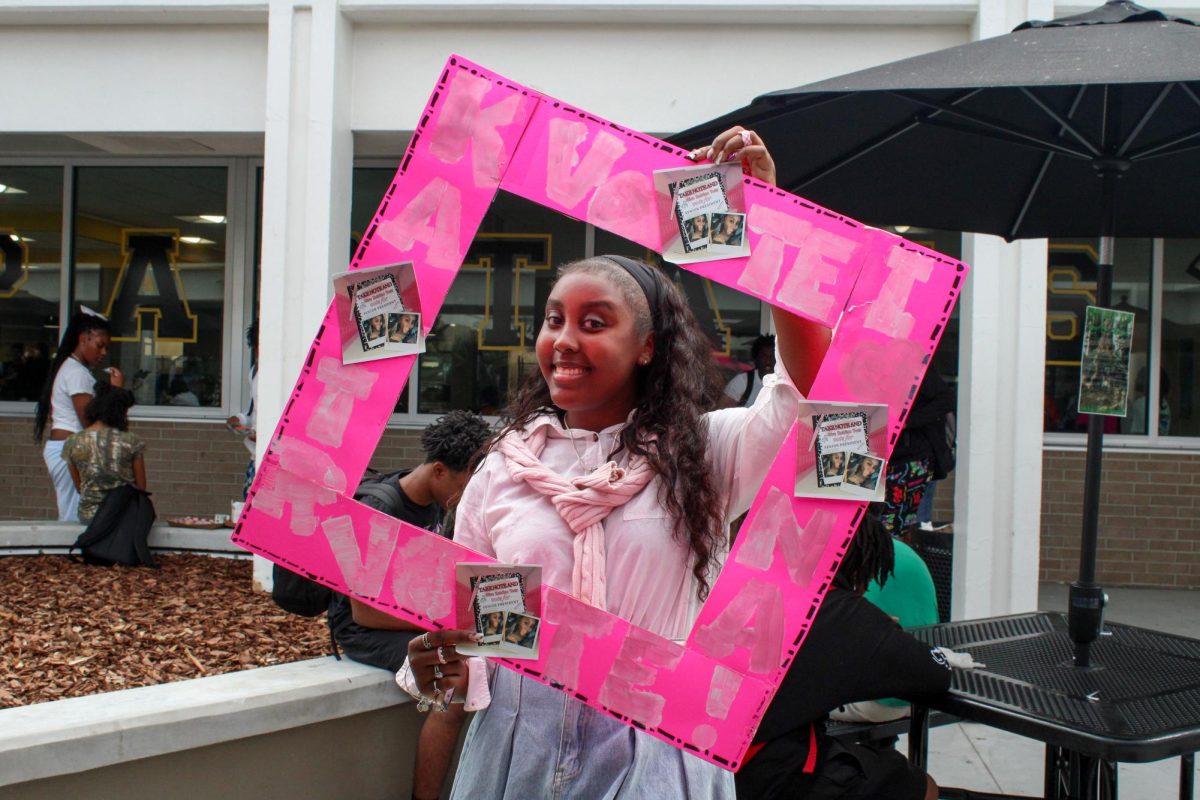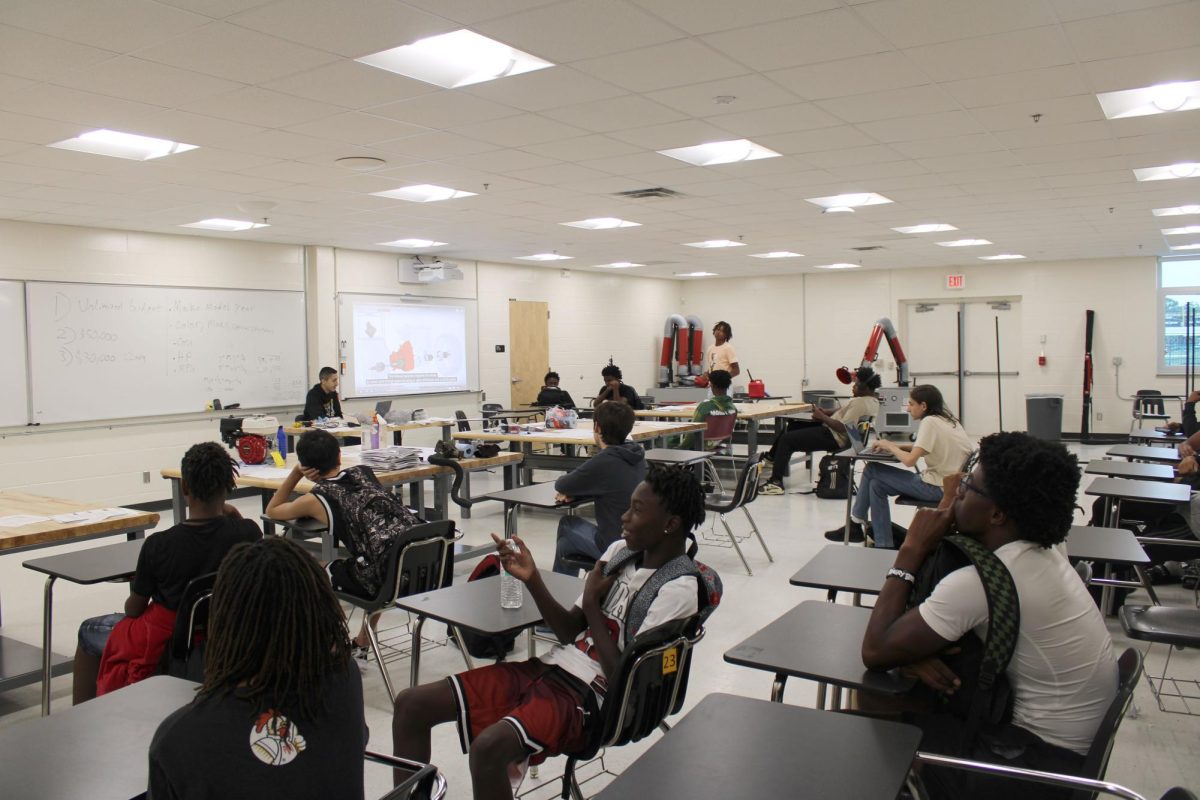
MIAMI BEACH, FL. — In a bold move signaling a significant departure from tradition, the city of Miami Beach has announced its decision to sever ties with the annual Spring Break festivities that have long defined the region’s tourism landscape. Citing concerns over public safety and community well-being, city officials unveiled a comprehensive campaign aimed at dissuading visitors from flocking to the area for the spring.
“This isn’t safe, so we’re done,” declared a recent advertisement shared by the official City of Miami Beach social media accounts, accompanied by images of headlines detailing arrests, fights, and violence from previous years. The advertisement, part of the city’s “break up with spring break” campaign, reflects a growing sentiment among residents and officials alike that the annual increase of partygoers has become unsustainable and poses significant risks to public safety.
The campaign, which includes a striking video posted with the hashtag #springbreakup, features three actors portraying Miami Beach locals delivering lines that underscore the city’s stance on the matter. The video, designed to spark conversations about the impact of Spring Break on the community, has garnered significant attention and sparked discussions about the city’s decision to act.
The decision to break up with Spring Break comes amid mounting concerns over public safety and escalating tensions between residents and visitors. In recent years, the annual festivities have often spiraled out of control, resulting in overcrowded beaches, rowdy behavior, and instances of violence and crime. Residents have voiced concerns about noise pollution, traffic congestion, and damage to property, prompting city officials to take decisive action.
In response to these concerns, city officials and law enforcement have implemented various measures to maintain order and ensure public safety during Spring Break. Increased police presence, stricter alcohol regulations, and crackdowns on unruly behavior have been among the tactics employed to manage the crowds and mitigate potential risks. However, despite these efforts, the challenges persist, and the strain on resources continues to mount.
“This March, you can expect things like curfews, bag checks, and restricted beach access, DUI checkpoints, $100 parking, and strong police enforcement for drug possession and violence,” the advertisement continues. “Whatever it takes because it’s time to move on,” the advertisement declares boldly, reflecting the city’s unwavering resolve to address the challenges posed by Spring Break head-on.
Looking ahead, Miami is charting a new course for its relationship with Spring Break. Instead of relying solely on the allure of wild parties and beachfront revelry, the city is exploring alternative strategies to attract visitors and promote tourism. This includes a shift towards curated cultural events, culinary experiences, and outdoor activities that highlight Miami’s diverse offerings and appeal to a broader audience. By diversifying its tourism offerings, Miami aims to create a more sustainable and resilient industry that can weather the difficulties of seasonal fluctuations.
Furthermore, Miami is ramping up efforts to engage with local communities and involve residents in the decision-making process. Town hall meetings, community forums, and surveys are being used to gather input and feedback from residents on how best to manage the impact of tourism on their neighborhoods. This inclusive approach seeks to foster greater collaboration and cooperation between stakeholders, ensuring that the needs and concerns of residents are considered.
While the breakup between Miami and Spring Break may disappoint some revelers seeking sun, sand, and endless parties, it also presents an opportunity for the city to redefine its identity and reimagine its future. By prioritizing sustainability, safety, and inclusivity, Miami can cultivate a more balanced and harmonious relationship with tourism that benefits residents, businesses, and visitors alike. In doing so, the city may discover that its true allure lies not in fleeting moments of excess, but in the enduring beauty of its landscape, the richness of its culture, and the warmth of its hospitality.







